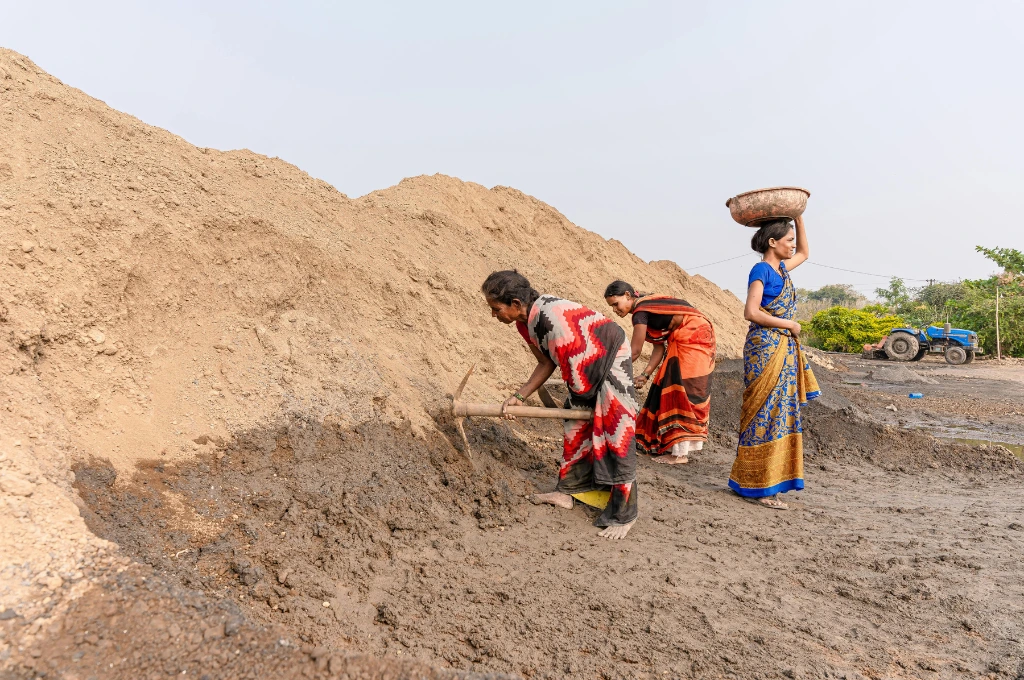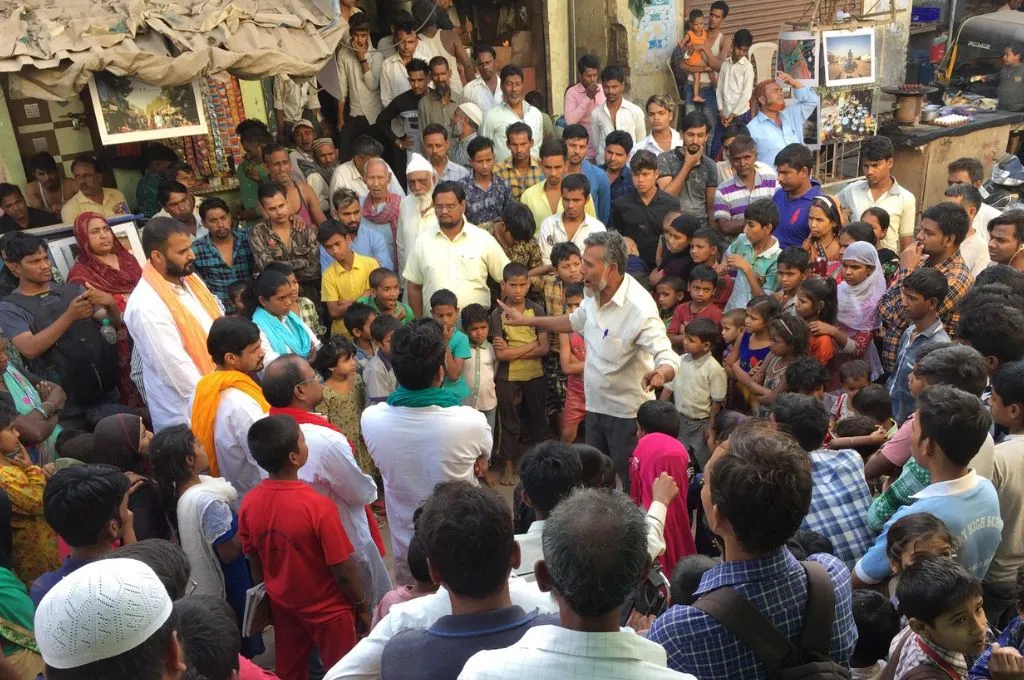Four labour codes passed by the Government of India in recent years are due for implementation. These codes mark a historic step in governing labour in contemporary India. They include the Code on Wages, 2019; the Occupational Safety, Health and Working Conditions Code, 2020; the Code on Social Security, 2020; and the Industrial Relations Code, 2020. This codification is critical in ensuring that the informal workers of the country, who make up the majority of the workforce, receive due recognition and welfare.
But how do these new labour codes address to the needs of unorganised workers? What impact will they have on the working lives of low-income workers? Are there any promising signs for this vast segment of informal workers engaged in precarious occupations across the country?
The informal sector and the significant number of people employed in it are not new concerns in India. However, the labour codes offer policymakers an opportunity to rethink existing legislation and introduce changes that can offer relief to those who have been working in precarious occupations. India has one of the world’s largest informal working populations. According to a recent estimate, the country has approximately 110 million informal sector workers, including those employed in agriculture, construction, and small factories; domestic workers; coastal and forest workers; ragpickers; autorickshaw drivers; street vendors; and power loom workers—a few among many overlooked professions. These workers are all around us yet remain largely invisible, especially to the state. Their invisibility manifests as a lack of written contracts, uncertainty in wages, irregular payments, and limited provisions for taking leaves. As of May 2022, more than 94 percent of workers registered on the e-Shram portal (national database of unorganised workers) reported an income of INR 10,000 or less.

In many states, institutional structures such as the Directorate of Industrial Safety and Health, Building and Other Construction Workers Welfare Board, Unorganised Workers’ Social Security Board have failed to provide informal workers with safeguards like guaranteed minimum wages, workplace safety, and pension benefits. For example, an International Labour Organization (ILO) report found that in 2022, 70 percent of workers in the construction sector in India did not receive the prescribed minimum wage.
However, the new labour codes are being hailed as the “biggest labour reforms in independent India”. The central government is positioning them as an effort to effectively implement minimum wages, ensure a safe working environment, and provide social security to everyone. If backed by political will, they present a watershed opportunity to provide relief in the form of social security.
Major concerns faced by informal workers
Informal sector workers are plagued by concerns of non-payment of minimum wages, deplorable work environments, unhealthy living conditions, and a lack of access to social security benefits. These issues were also highlighted at Labour Codes and Unorganised Labour, a two-day workshop organised by the Asangathit Shramik Hit Rakshak Manch (Unorganised Workers Social Protection Platform) in September 2024 in Ahmedabad, Gujarat. The workshop brought together 32 informal workers’ organisations from Gujarat to bridge the awareness gap by deepening their understanding of how the implementation of the four new labour codes could benefit informal workers.
I attended this event as part of a 14-month ethnographic study, during which I worked with Bandhkam Mazdoor Sangathan, an Ahmedabad-based trade union. I also spent time with a civil society organisation called Aajeevika Bureau. The ethnography aimed to deconstruct the lived realities of migrant construction workers in Gujarat and their access to welfare schemes.
Here are some of the challenges raised by the workers at the event:
1. Non-payment of minimum wages
Although minimum wages are guaranteed through the Minimum Wages Act, 1948, many informal workers still do not receive them. Construction workers, agricultural labourers, forest workers, and many others complained that wage theft by contractors, middlemen, and even employers has become the norm.
2. Precarious working environment
Many informal workers work in precarious conditions (construction, power looms, fisheries, factories), where occupational health hazards and accidents are common. Some precarious workers have also lost their lives owing to the lack of enforcement of safety regulations.
3. Substandard living conditions in urban India
Many informal workers do not have decent living facilities in rapidly urbanising India. A typical example would be the living conditions of construction workers, who often seasonally migrate to big cities and are forced to live on the streets or in makeshift tents at construction sites.
4. Lack of formal sector benefits
Informal workers lack formal sector benefits such as written contracts, salaried employment, and safe and non-exploitative working environments. Additionally, they face constant uncertainty about work not being available for a longer period and even unemployment.
In an effort to address these challenges, the Ministry of Labour and Employment launched the e-Shram portal in 2021 for creating a database of informal workers across the country and linking them to important welfare and social security provisions. Currently, more than 30 crore workers are registered in the e-Shram portal. Once registered, workers can access various welfare schemes, including the Pradhan Mantri Shram Yogi Maandhan Yojana, Pradhan Mantri Jeevan Jyoti Bima Yojana, and Pradhan Mantri Suraksha Bima Yojana. While the state encourages workers to register on the e-Shram portal, informal workers at the event indicated that they want the government to go beyond administrative processes and work on improving the social protection being offered to them.
Unorganised workers’ welfare board: A possible solution?
The four new labour codes were introduced to rationalise existing labour laws by consolidating them under an umbrella legislation. According to the central government, this would help solve confusion related to the multiplicity of labour laws, while providing informal workers with much-needed social security and decent working conditions. The most significant code aimed at providing welfare to informal workers is the Code on Social Security, 2020. Under this code, there is a clause stipulating the formation of a National Social Security Board and a State Unorganised Workers’ Welfare Board, which have been touted as critical to addressing the needs of unorganised workers. However, the Unorganised Workers Social Security Act, 2008, already provided a similar mandate. Although it has been a decade and a half since the act was passed, these boards are yet to operate at full capacity or generate any meaningful impact.
The governments of many states, including Gujarat and Tamil Nadu, have formed unorganised workers’ welfare boards. But my fieldwork in Gujarat revealed that the board has limited financial resources to formulate and implement welfare schemes.
It is a mammoth task for state governments to operationalise state unorganised workers’ welfare boards and run welfare schemes for them. These are some of the challenges:
- Understanding the needs of informal workers: Informal workers are spread across a wide range of occupations, and it is challenging to build viable financial resources to fund these welfare schemes for a sustained period of time.
- Structural transformation: Many professions that fall within the unorganised category are inherently exploitative. While these boards may provide welfare in the form of schemes, can they guarantee minimum wages, provide an accident-free working environment, and mitigate occupational diseases?
- Lack of clarity: Workers and unions remain unsure about how the new labour codes could benefit them. Effective dialogue with state authorities is necessary to clarify the various clauses and their benefits and gather feedback on which micro-policy additions can be made according to the needs of different occupations within the informal sector.
- Non-functioning boards: Some states have already formed unorganised workers’ welfare boards, but they are practically non-functional. The hope is that the renewed legislation under the Code on Social Security will force these state governments to operationalise these boards, which have long been in limbo.
Despite these challenges, the establishment of Building and Other Construction Workers’ Welfare Boards across all Indian states offers a positive example to follow. These boards serve as dedicated public institutions and have gradually begun to facilitate constructive changes, primarily by running welfare schemes for migrant construction workers in the country.
For example, the board mandates the collection of a cess from construction sites, which funds welfare initiatives for construction workers. Each state’s Building and Other Construction Workers’ Welfare Board will finance its welfare schemes through this tax mechanism. But as far as other unorganised workers (that is, those not engaged in construction work) are concerned, a similar system would need to be established.
Devising such a mechanism is highly challenging due to the range of occupations and the informality that defines them. In such cases, state governments must provide the financial resources necessary for running welfare schemes. However, funding such resources has become a matter of public debate, as exemplified by the recent discourse on freebies.
A potential roadmap for the future
The four new labour codes present a crucial opportunity for unorganised workers to collectively organise and meaningfully engage with the state to put forward their demands. The codes were introduced with the promise of universalising minimum wages and ensuring the timely payment of wages. The consolidation of 29 existing laws into four comprehensive codes is meant to uphold the dignity of unorganised workers across the country. The need of the hour, however, is for workers and organisations that advocate for workers’ rights to hold public institutions such as the welfare boards accountable.
These labour codes are unlikely to make a difference until the central and state governments actively participate in dialogue with unorganised workers and their unions to understand their demands. This would help the state identify sector-specific challenges and determine the necessary steps to improve working conditions and design appropriate schemes. A strong political will is critical to understanding and meeting the needs of unorganised workers. Without it, the new labour codes are toothless.
—
Know more
- Read this article on the impact of heatwaves on informal workers.
- Read this photo essay about hamal workers’ struggle for labour rights.





